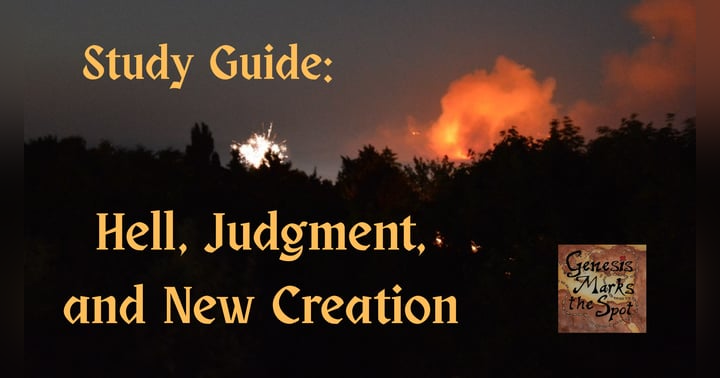Etiology: Material Causation vs "Meaning-Making"
Z: Some say Genesis should be understood as a literal story because it has a number of etiologies that only have relevance if it historically happened. What do you think?
G:
Me: In a scientific sense, yes, etiologies are "causes." In medicine, for instance, if you're exploring an etiology, you need to find root causes to treat something.
But in narrative (like Genesis, or like your old family stories), an etiology is the explanatory narrative. In the Bible, it's a theological explanation. They are meaning-making accounts.
So there can be a difference between material causation (as many fundamentalists read Genesis as) vs a narrative-theological explanation; the people of Israel explaining origins for what they see and experience.
Etiology as Explanation for a Cause
But in biblical studies (and especially in Genesis), etiology usually refers not to the “actual” cause, but to a story told to explain why something is the way it is—a kind of explanatory narrative. These are “just-so stories,” in a neutral sense, that give cultural or theological meaning to phenomena. For example:
“Why is childbirth painful?” → Genesis 3 offers an etiological explanation: linked to Eve’s disobedience.
“Why do humans speak different languages?” → The Tower of Babel.
“Why is the rainbow a sign of peace?” → Post-Flood covenant.
Here, the “cause” in the narrative is not a scientific mechanism but a theological explanation. The story functions to frame ordinary realities (pain, languages, rainbows, toil, etc.) within a worldview that links them back to divine will, covenant, sin, or blessing.
1. Etiology as Cause
Definition: An account of the mechanism or origin that produces an effect.
Focus: The chain of causation.
Example (medical/scientific): “The etiology of smallpox is the variola virus.”
In biblical terms: You sometimes see this in “hard cause” moments—e.g., “because you ate … cursed is the ground” (Gen 3:17). The ground’s curse is presented as a direct causal consequence of Adam’s action.
2. Etiology as Explanation for a Cause
Definition: A story or narrative that provides theological, cultural, or moral meaning for why something is the way it is.
Focus: The framework of significance, not the mechanism.
Example (narrative/theological): “Why do we rest on the seventh day?” → Genesis 2 presents rest as grounded in God’s rest, not in a natural mechanism.
In biblical terms: The Tower of Babel (Gen 11). Languages don’t split because of historical linguistic drift; they split because God judged human pride.
3. Distinguishing Formula
Cause-oriented etiology answers: What started this? What’s the root mechanism?
Explanation-oriented etiology answers: What does this reality mean in God’s world? Why should we understand it this way?
In Genesis (and much of the ancient world), etiologies are usually explanation-oriented: they don’t describe how languages actually diversified, or how rainbows form, but they give a theological rationale for why these things exist and what they signify. That’s why it’s helpful to say:
👉 Etiology in modern science = tracing causal mechanisms.
👉 Etiology in Genesis = giving meaning through narrative explanation.
Reclaiming Creation: A Faithful Response to Anti-Evolution Theology







